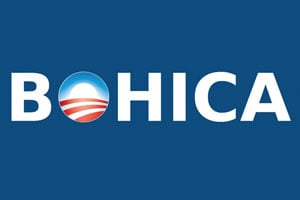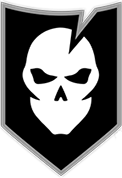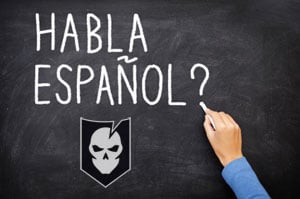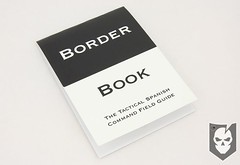Military Acronyms,Terminology and Slang Reference
Military Acronyms,Terminology and Slang Reference
 We’ve wanted to put together a reference for many of the acronyms that get tossed around here on ITS, along with some you may have casually heard out there and possibly don’t know the meaning of.
We’ve wanted to put together a reference for many of the acronyms that get tossed around here on ITS, along with some you may have casually heard out there and possibly don’t know the meaning of.
Thanks to a good friend who helped compile the majority of this list, we give you Military Acronyms, Terminology and Slang Reference.
Feel free to add any into the comments below that we may have neglected to put in. If this is well received we’d like to add it as a link on the site for quick reference.
Military Acronyms, Terminology and Slang Reference
100mph Tape: Standard issue Army green duct tape. Called 100mph tape due to the belief it can withstand speeds of up to 100 mph when slapped on holes.
50 cal: M2 Browning .50 caliber machine gun. Alternately known as 50 cal, 50, M2 or Ma Deuce.
550 Cord/Parachute Cord: Nylon cord used to connect a chute to a chute harness. Now used to tie damn near anything down. Used a lot when ‘dummy cording’ things down.
9 mil: M9 Berretta pistol.
AMTRAC: APC used by the Marines AO: Area of Operations.
AOR: Area of Responsibility. The assigned area to any given unit.
ASK kit: Armor Survivability Kit. A kit designed in response to the high number of casualties produced by IEDs hitting unarmored vehicles. The kits consist of armor encapsulating the personnel compartment AT-4: an 84mm anti-tank round. Essentially, a disposable Bazooka.
AWR: (Alpha Whiskey Romeo) Allah’s Waiting Room. When engaged, (insurgents) have a tendency to flee to the same building (the AWR) at which point the troops radio in an air strike.
Acquire (through non-standard means)/Acquire/Requisition: There are some times when one can’t get necessities through the proper channels, so one needs to….sort of borrow things. (Note: This used to be referred to as “Comshaw” in the Navy.)
Ali Baba: Generic Iraqi term for bad guy, be it insurgent or criminal.
Angel: Among American Military Medical personnel in Iraq, a soldier killed in combat.
Ate up: Also said as “11 up and 3 down.” See Charlie Foxtrot.
BAF – Bagram Air Field. The major air hub in A’stan and like KAF a former Soviet air base. At BAF, there’s the ‘metal highway’ – the metal link air strip that is a major landmark on the base.
BFT: Blue Force Tracker. A cool little gizmo that allows a BFT equipped vehicle to link up with a satellite and give the locations of friendly and enemy units, maps, and routes.
BIAP: Baghdad International Airport.
BOLO: pronounced “bolo” 1. Be On the Look Out. Usually a list with descriptions of vehicles or personnel to be on the lookout for. 2. Slang for no good. Can be used as a noun when something goes wrong “That’s a bolo,” or a verb “I bolo’d that task.”
BOHICA: Bend Over Here It Comes Again!
Battlefield Airmen: Air Force Special Operations Command (AFSOC) pararescue, combat control and weather troops. The term battlefield Airmen may be new, though AFSOC troops have been filling those combat jobs for many years.
Beans, Bullets, and Band-Aids: General reference to supply items, i.e. food, ammunition, and medical supplies.
Bird: Anything that flies, be it fixed or rotary wing.
Blue Canoe: a portable (chemical) toilet.
Blue Falcon: One that is willing to screw his buddy. Also known as Bravo Foxtrot and Buddy Fucker.
Brad or Bradley: M2 Bradley Armored Personnel Carrier (APC). Primary mode of transportation for mechanized infantry units.
Bunk: What one sleeps on.
Butter Bar: 2nd Lieutenant/Ensign. Refers to the gold bar of rank.
C-Wire/Concertina Wire: Razor Wire.
CAB: Combat Action Badge (ARMY). Developed in response to number of soldiers performing in a infantry or infantry-like position under the same conditions as the infantry, but do not hold an infantry MOS
CC: Coalition Country: the coalition of the willing allies.
CCP: Casualty collection point. Area closest to immediate action where casualties are triaged.
CHU: Containerized housing unit. – Aluminum boxes slightly larger (22’X8′) than a commercial shipping container, with linoleum floors and cots or beds inside. This insulated CONEX shipping container has a door, window, top vent, power cabling and an air conditioner. One version houses four people, while another is split in two, two-person rooms. The version with a shower and toilet shared between two rooms is called a “wet chu,” which provides less crowded latrine and shower conditions than tents. The CHU gives soldiers a lot more living space than tents.
CHUville: A base consisting of a large number of CHU’s.
CIB: Combat infantryman’s badge (ARMY). Awarded to holders of an infantry MOS provided the soldier is under fire, and holds an infantry duty slot.
CP: Check Point. Usually numbered.
CSH: Combat Support Hospital.
Camelback: water bladder usually carried on the back, holds up to 3 liters.
Cannon-Cocker/Gun Bunny: Artilleryman Case of the Ass: In a really foul mood.
Charlie Foxtrot: The alphanumeric of the letters C and F. A more polite way of saying Cluster Fuck.
Charlie Mike: Continue mission. Keep doing what you were doing.
Chocolata: Chocolate. Mainly used by children in conjunction with “Mista, mista, gimme.”
Clearing barrel: A barrel filled with dirt around the entrances of the FOB. Used when clearing a weapon upon entry to the FOB.
Cluster Fuck: Essentially when someone or some situation is completely messed up.
Crypto: encryption keys for the radio. Computer code that scrambles the signal to prevent unauthorized listening.
DAP: Deltoid auxiliary protection. Shoulder armor primarily issued to gunners following increased numbers of gunner shrapnel injuries to shoulders. DAP kits also included side armor made of Kevlar, with no plates.
DFAC: Dining Facility. Pronounced “d-fack” Others used: mess hall, chow hall. Place where service members eat. DFAC’s are modern looking cafeterias, some decorated with sports memorabilia, movie posters, and televisions with ESPN on.
Death Blossom: The tendency of Iraqi security forces, in response to receiving a little fire from the enemy, to either run away or do the “death blossom” spraying fire indiscriminately in all directions.
Detail: A group of service members sent to do a job.
Dirka Dirka: A phrase used to parody the sound of Arabic. First used in a South Park episode, later gained more widespread use through the movie Team America.
Dirt Sailor: A member of the Navy’s Construction Battalions (Seabees). In Iraq, a sailor playing a part that is not a normal Navy role.
Double Digit Midget: Less than 100 days left down range.
Double Gates: They always cover their nametapes and never call each other by their real names while they’re near detainees.
Down Range: Derived from the term to check on targets on shooting ranges. Refers to anyplace where there’s shooting.
Drager: Rebreather. Closed-Circut Dive Rig.
Drive On: The ethos of the soldier/Marine. Just keep on goin’. Usually used in the phrase “Suck it up and drive on.”
Dummy Cord: (noun or verb) Term denotes the tying down of sensitive items (nvg’s, aimpoints) or not so sensitive items (i.e. canteens) to a service member’s body. So called to prevent being called a “dummy” for losing something.
FOB: Forward Operating Base. Usually just known as Fob. Most times followed by a name, i.e. FOB Warrior. Where troops primarily stay. Also populated by FOBBERS, FOBBITS, and FOBGOBLINS.
FOBBERS, FOBBITS, FOBGOBLINS: Three of the derisive terms used to describe someone who never leaves the FOB. Akin to the Vietnam era “REMF.” REMFland, the rear-echelon areas where support personnel live and work in relative safety – the paradox being that in the Sandbox, unlike Vietnam, REMFland is more a state of mind than a physical location.
FRAGO: A change in the OPORD that does not require a wholesale change in the OPORD. A FRAGO determines timely changes to an already existing order. The important point here is that a frag order is issued based on the basic operation order and is not a “stand alone” directive. It will normally state the changes from the basic order such as enemy situation and new taskings.
FST – pronounced “Fast,” as in “Fast team” [sic, red.]. Forward Surgical Team, one of the major medical support innovations since ODS that has resulted in lower DOW rates in the current conflict.
Farmer Armor / Hillbilly Armor: improvised vehicle armor.
FID: Foreign Internal Defense.
Fourth Point of Contact: Derived from the description of a Parachute Landing Fall (PLF), refers to one’s rumpus. As in”you better get yer head outta yer fourth point of contact!”
Frankenstein: A Marine Corps monster truck, bulging and rippling with spot-welded seams of add on armor. As of December 2004, of the 30,000 estimated wheeled vehicles in Iraq and Afghanistan, about 8,000 of the older models did not have armor protection. Of those that were protected, about 6,000 had full protection, while about 10,000 vehicles had received add-on kits, many improvised in theater.
Glass House: a mock up of the layout of a target house used to rehearse assaults before a mission.
Goat Trail: dirt or unpaved road.
Green Zone: Heavily guarded area with several former Presidential Palaces in central Bagdad where US coalition and Iraqi authorities live and work. Much of the rest of Iraq is the Red Zone.
Grunt: Infantryman
Gun Truck: Usually a turtle-back Humvee with a weapon system on top (i.e. .50 cal, or Mk-19).
Haji: Service members’ term for indigenous Iraqis or persons of Arabic descent. Derived from the term given to one that has made the hajj, the pilgrimage to Mecca. Used as an adjective to describe anything Iraqi or Afghani (i.e. haji DVD, haji internet, haji cell phone) Also used: jundi.
Haji Armor: improvised armor, installed by troops hiring Iraqis to update the vehicles by welding any available metal to the sides of Humvees.
Haji Detail: overseeing Iraqi work details on FOBs, mainly day laborers.
Haji Mart: convenience store usually found on FOBs. Usually sell various sundries, from DVD’s to candy bars to cigarettes. Also, sometimes sold porn and alcohol.
Hardball: paved road.
Hardened Building: A building with sandbags and a roof, preferably made of concrete.
Hesco: big bins filled with dirt used to absorb explosions.
Hooah: The official word of the Army. Meaning varies dependent upon the circumstances. Origin is apocryphal.
Hooch: Where one sleeps
Hooyah: The official word of tadpoles going through BUD/s and the Navy SEALs (although not used much after BUD/s.) Can be used as an acknowlegement “do you understand? Hooyah.” A greeting “Hooyah Lt. Dan!” or a battle cry “Hooyah!”
Hot-A’s: Hot chow. When mermited, usually arrives cold or lukewarm.
ICDC: Iraqi Civil Defense Corps. Forerunner to the ING, disbanded and reformed as the ING due to alleged corruption, incompetence, and collusion with the insurgent forces.
IED: improvised explosive device. Military jargon for a roadside bomb. Varies is size, and materials
ILO MP: IN LIEU OF MP. One with an MOS of other than MP, but retrained as one.
ING: Iraqi National Guard.
INTSUM: Intelligence summary. pronounced “ent-some” most of the time, given the day after the events were supposed to happen. It’s nice in that it lets you know what was supposed to happen yesterday.
IP: Iraqi Police
Imshi: Arabic for “move along.”
Indirect: indirect fire, usually referring to mortars and rockets.
Insh’allah: Arabic for “will of God.” Along the lines of “so be it.”
Inside The Wire: inside an enemy combatant detention facility. Working “inside the wire” of the enemy combatant detention facility can lead to stress for the US troops working there.
Istah: Derogatory Arabic for “move along.”
Jingle Trucks: (Afghanistan) (transport trucks with colorful stickers and chimes), the military contracted for host nation delivery trucks, known as “jingle trucks” because of the decorative metal tassels hanging from the bottom of the truck frames that jingled when the trucks moved. These trucks are contracted through Afghan Government officials. The NCO responsible for these contracts was known as the “jingle man”. The contract price was based on the destination and the type of truck used. Fuel tankers and trucks that could carry 20-40 foot containers were available. Although serviceable, these trucks would no pass standard US specifications.
KAF: stands for Kandahar Air Field. It is the main base of operations for the Southern part of Afghanistan. It is the main transportation hub-both Helo and Fixed Wing-also Convoys of Humvees going in and out.
KBR: Kellogg, Brown, and Root. Subsidiary of Halliburton, they are the primary contractor in OIF/OEF, running most of the logistical support.
Kevlar/Kpot/ACH: Helmet.
Lima Charlie: Loud and Clear.
M1114 /Up-Armor: Factory armored Humvee. Heavier and more protection than ASK kits, which is after factory armor added to a soft-skin Humvee.
M1: M1 Abrams Main Battle Tank.
M203: 40 mm grenade launcher, usually mounted under the barrel of and M16/M4. Single shot. Usually know as “2-O-3.”
M240: Machine gun. If dismounted, used in pairs with a gunner and assistant gunner (AG).
M249/SAW: Squad automatic weapon. Primary automatic rifle of a team/squad. Fires the same round as the M14/M16, but is belt fed, capable of firing 500-800 rds/minute. Ammo is usually carried in 200 round drums or 100 round bags (also known as “tea bags.”)
M4/M16: Standard rifle. The M4 is distinguished from the M16 by a shorter barrel and a retractable stock. The M4 is usually equipped with a rail system, to which various items can be attached.
MRE: Meal Ready to Eat. Alternately known as meal refused by everyone, meal refusing to exit, meal mysteries, and the 3 lies; they aren’t meals, they aren’t ready, and they certainly aren’t edible.
MSR: Main supply route. Usually a highway with a name designation following it. Largest MSR in Iraq is MSR TAMPA, going from Kuwait to Turkey.
MWR or MWR Tent: Morale, Welfare and Recreation. Usually an area of the FOB set up for various games, books, internet, and television.
Maku: Arabic roughly translated to “I don’t have any,” as in “Maku chocolata.” Usually followed by Iraqi child swearing at you in English.
Mark 19: Automatic 40mm grenade launcher, belt-fed.
Meet the locals – Acronyms and poorly spoken Iraqi Arabic
Mermite: 1. (n.) container used to transport Hot-A’s from the DFAC to service members. 2. (v.) Moving Hot-A’s”We’ll mermite chow out to that OP.”
Midnight Rats/Mid Rats: Late night chow for those that can’t make the DFAC during regular hours.
Mike Mike: Millimeter. Used mainly when referring to the metric caliber of ammunition.
Mike: Minute. As in “I’ll be there in 5 mikes.”
Mortaritaville/Bombaconda: Nickname for LSA Anaconda, a major base near Balad, reflecting the frequent mortar attacks.
Mu Zien: no good.
Muj (pronounced: Mooj): Short for Mujahadeen. Formally a person who wages jihad, informally used for the Iraqi insurgents starting in 2005.
NCO: Non-commissioned officer. A fancy way of saying sergeant.
NCOIC/OIC: Non-commissioned officer in charge/Officer in charge.
NGO: Non-governmental organization. (Red Cross/Crescent, Doctors without Borders, etc.)
Net: Radio network. Usually unit specific.
O’ Dark Thirty: Far too early in the morning.
OGA: Other Government Agency – CIA
OPORD: Operations Order. A five Paragraph format for combat orders. Includes situation, mission, execution, service and support, and command and signal
OPSEC: Operational Security. Prevention of plans, troop numbers and strategy from getting to enemy
OTV: (Outer Tactical Vest)/IBA (Individual Body Armor)/Vest- body armor. Usually consists of a Kevlar vest and ceramic plates. Combined, rated to a threat level IV, meaning it can stop a 7.62mm round.
Ooh-Rah: The official word of the Marine Corps. Meaning varies dependent on the circumstances.
PCC/PCI: Pre-combat check/inspection. Checking of pertinent equipment and knowledge of mission before operation.
POG: Pronounced “pogue.” Usually referred to someone that is a “shammer,” or someone that is no good. Varies in usage. Originally used mainly by infantry personnel, referred to ‘people other than grunts.’ Usage moved throughout the Army, now generally refers to anyone that is a poor excuse for a soldier.
POO Site: Point of origin site. Pronounced “poo” Point of origin for indirect fire
PRT: This stands for Provincial Reconstruction Team. These are military, government departments and civilian aid organizations from our country and many others who come to a town to help rebuild. They coordinate construction projects and provide humanitarian assistance.
PSD: Personal Security Detail-private security contractors.
Plugger: PLGR (Precision Lightweight GPS Receiver); a GPS unit.
Pogey Bait: derived from POG, refers to candy, sweets, or any other food that the Army does not issue but tastes good (any food the Army doesn’t issue.)
Pop Smoke: Leave.
Pucker Factor: not necessarily a number, but generally refers to the intensity of fear felt during any given situation. Derived from the involuntary clenching of the buttocks during high-stress situations.
QRF: Quick Reaction Force. On standby to react to any situation.
ROE: Rules of Engagement. The rules given to every service member on when to engage targets. Changes dependent upon the situation.
RPG: Rocket Propelled grenade. Insurgents like to fire these at coalition forces.
RTO: Radio telephone operator (Army) or RO-radio operator (Marines). The person working the radio, usually either in a combat maneuver element or at the TOC (see below).
Red on Red: Enemy-on-enemy fire. In June 2005, it was reported that Marines patrolling the desert near the Syrian border had, over the previous several months, seen a new trend in the Iraq insurgency. Insurgents were fighting each other in towns along the Euphrates from Husayba to Qaim. This suggested that there had been a split between Islamic militants and local rebels.
Roger, Roger That: From radio parlance, a word for ‘understood.’
S-1: Personnel.
S-2: Intelligence.
S-3: Operations.
S-4: Logistics and supply.
S-Shops: Battalion-level organizations that handle administrative duties. Usually there are only 4, but can be more, dependent upon the level of command. Many times referred to as ‘shops’ as in the ‘3 shop’ (operations)
SAPI: Small arms protective insert, usually pronounced “sappy.” Ceramic plates inserted into the front and back of the IBA/OTV
SINGARS: Radio SP/RP (start point/release point): used to call in departure (SP) and arrival (RP). Almost always used in acronym form, and can be either noun (the SP is at checkpoint 12) or verb (We RP’d about 20 minutes ago.)
Sadiki: Friend.
Salaam Aleikim: A more formal Arabic phrase for hello. Translates to ‘peace be upon you.’ Response: Aleikum salaam; and upon you, peace.
Sandbox: Almost any desert area of operations, or middle eastern country.
Shake and Bake: First used during Vietnam War and revived in Iraq to refer to attacks using a combination of conventional bombs, cluster bombs (CBU), and napalm. In the battle of Fallujah in 2004, it was used in reference to a combination barrage of White Phosphorus and explosive artillery shells.
Sham Shield (Army only): a designation for the rank of specialist, E-4. Refers to one who does not have enough rank to be an NCO, but has enough experience to get out of some of the lousy details.
Sham: To shirk one’s duties. Usually used when referring to one that avoids unpleasant, non-life threatening work. When used as a noun, shammer.
Snivel Gear: Any article of clothing used to prevent troops from sniveling when the conditions get too wet or cold. This category includes Gore-Tex parkas, gloves, balaclavas, neck gaiters, etc.
Soft-Skin: unarmored vehicle. Primary vehicle for OIF/OEF I, many later had armor added on, either as ASK kits, or salvaged metal found by digging through local landfills and welded on (hillbilly/farmer armor).
Spoon: a cook or someone who serves food as their job.
Stryker: 8 wheeled APC.
Sustainer Theater: AAFES’ motion picture team has assembled an opening lineup of movies for the Balad Camp Anaconda theater dubbed “Sustainer.” Before soldiers can view first run shows at the Sustainer Theater, the process of getting movies there takes weeks of time and effort, initially beginning at the Army Air Force Exchange Service headquarters in Dallas.
TCN: Third Country National: A citizen of a neutral country who is in the theatre of operations as a contractor. The Nepalese truck drivers who were killed by Ansar Al Sunnah in the summer of 2004 were TCN’s.
TCP: Traffic Control Point.
TOC: Tactical Operations Center. Usually pronounced ‘tock.’ Where command elements are primarily located.
Tent City: More often seen in Kuwait or in beginning of OIF, essentially a large collection of tents
Terp: Interpreter.
The Joys of Life Downrange: Everyday lingo.
Turtleback: Swimming on your back while watching the direction you came from and typically a compass-board. Usually done with a chest-mounted breathing aparatus like a Draeger.
Turtleback Humvee: a Humvee that does not have an open back. Usually a M1114 or M1025, when viewed from the side, looks like a turtle.
U-1/2/3: Codes given for level of troop protection on the FOB, varies from day to day dependent upon intel. Exact qualifications vary from FOB to FOB, but generally along these lines.
U-1: No body armor or helmet required, must have weapon and magazine of ammo.
U-2: Must have body armor, helmet, weapon and magazine whenever out side a hardened building or trailer. Usually for a specified time period.
U-3: Same as above, but open-ended, without any specific time period ending.
UXO: Unexploded Ordnance. Anything that has the potential to blow up, but hasn’t.
VBIED: vehicle borne IED. Car bomb. Usually either spelled out or stated as “V-bed’
Washington’s Driver: Someone who’s been in the service a very long time. As in the person is old enough to have been Washington’s driver.
Whiskey, Tango, Foxtrot, over?: Alphanumeric abbreviation in the form of a radio communication. Literally translated: What the Fuck, over? Used when things devolve into a Charlie Foxtrot.
Wileys/Wiley-X’s: protective eyewear issued to all soldiers in theater.
XO: Executive Officer. One step below Commanding Officer.
Zulu Time: Greenwich Mean Time.











Discussion